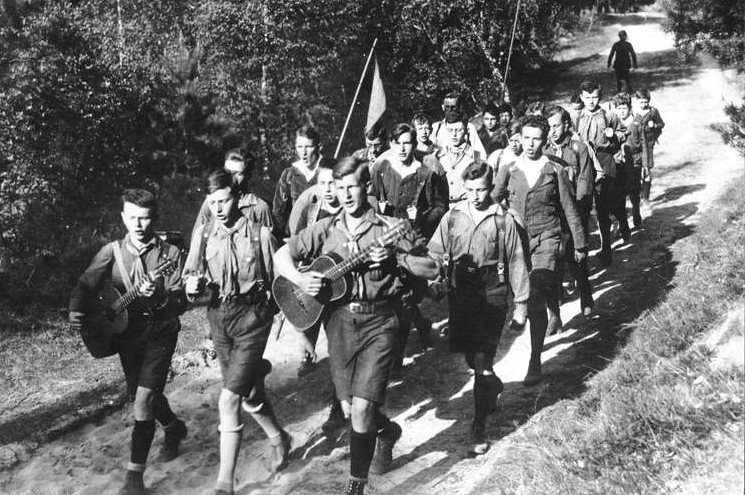What Do You Get When You Cross a Boy Scout with a Hippie?
In the 1890s, a grass-roots movement of young men came into existence in Germany. A cross between Boy Scouts and hippies,* they called themselves the Wandervögel, literally the “wandering birds.”** They rejected the strict class system, materialism, and urban life of Germany under the Kaiser and embraced a romanticized ideal of a simpler time when people were in tune with the land—an ethos that will sound familiar to those of us who remember the late 1960s and early 1970s. They adopted a “uniform” of shorts and hiking boots–in itself a rejection of middle class German mores. They hiked through the German forests, slept under the stars, and sang old German folk songs around the campfire. They also adopted the habit of greeting each other by saying “Heil”, or hail. (Can you see where this is going?)
The Wandervögel saw itself as a Jugendkultur—a youth movement led by youth for youth. Not a Scoutmaster in sight. But as the movement grew in popularity between 1900 and 1914, a number of mainstream political, religious, and even sports groups organized youth groups that borrowed the outdoor activities and the shorts but not the distinctive ethos of the Wandervögel.
With the beginning of the First World War, in 1914, most members of the Wandervögel were swept into the German army. The movement as such was broken, but the idea of youth groups remained. After the war, organizations on all sides of the German political spectrum, including the nascent Nazi party, organized youth groups with a paramilitary flavor. Folk songs were no longer part of the program but the greeting “Heil” remained part of the culture.
*Both of which they predated, though in the case of the Boy Scouts not by much
**A name which always makes me think of the children’s song “Here we sit like birds in the wilderness.”





